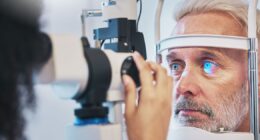A BBC doctor has said that if you have a common drink often, then you may want to reduce just how much you consume this as it is putting you at risk of a stroke.
Talking on BBC Morning Live today (October 1), Dr Xand van Tulleken said that the statistics of those having one is rising with age being a big factor. However, it’s not just age that puts people at risk with fizzy drinks high on the list. Explaining what the life-threatening medical emergency is, the NHS explains: “A stroke is when blood stops flowing to a part of your brain. It can affect things like speech and movement, and take a long time to recover.”
The BBC doctor explains that “how fragile your arteries are” and “how irritable they are affects the chances of clots forming” with the risk factors that damage your arteries – and thus cause a stroke – varying.
The risk factors include:
- Smoking
- Alcohol
- Blood Pressure
- Diabetes
- High Cholesterol
- Increased intake of ultra-processed food
- Fizzy drinks
- Lack of exercise
Talking about the risk factors above, he says that they are all “associated with life in the modern UK and as those things go up, so does our risk of a stroke”. He further adds that “particularly fizzy drinks are associated with a high risk” meaning if you like a fizzy drink on a daily basis, you may want to reduce how much you consume.
One viewer wrote in to say that her husband, who suffered from a stroke, did not have the typical symptoms with Dr Xand stating it was an “important point” to make stressing that people should remember FACE. This stands for Face, Arms, Speech, Time, however these signs and symptoms only “captures 85 per cent of strokes but strokes can affect any part of the brain”, he warns. He further explains “all strokes are different”.
This is because it could affect any part of your body and your symptoms will all depend on what blood vessels are blocked in your brain. Stressing one message he wants people to take away with them, he warns: “The key point is if you think there is something wrong with your brain, talk to your doctor. It is a medical emergency”.









